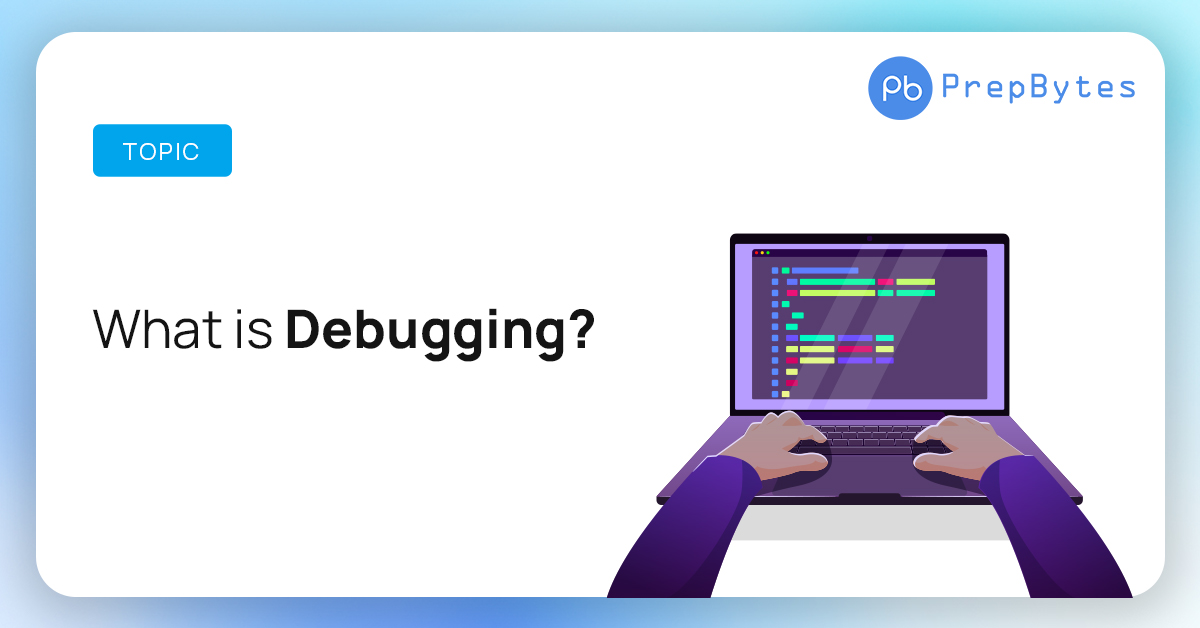What is software debugging? Debugging is a term in programming that refers to a multi-step process involving identifying a problem, isolating its source, correcting it, or finding a workaround. The last debugging stage (Debugging) also includes testing the patch or approved solution to ensure it works.
Debugging begins with detecting errors in code, whether syntactic, logical, or otherwise, and then replacing or rewriting them correctly by the developer. Debugging is part of the software testing process and integral to the entire software development life cycle.

What is debugging?
The terms debug for software bugs and debug for debugging are attributed to Admiral Grace Hopper, a programmer known for her wit. When a natural bug (an insect) got stuck between electrical relays and caused problems in the US Navy’s first computers, Admiral Hopper’s team removed the bug from the computer, and the moth that had been saved is now in the Smithsonian.
Types of errors
In general, it can be said that there are three types of errors in programming:
- Syntax
- Semantics
- Logical errors
Syntax
Syntax means correctly placing expressions and formulas in the programming language; Syntax specifies the most accurate way to place statements to have an error-free program. Of course, it is better to know that programming languages have their own syntax rules. Whenever you encounter a Syntax error, know that the rules and the way the expressions are placed are wrong, and you should correct them.
Example:
” Neda eats an apple” is a correct expression, but when we say “Neda eats an apple,” this expression is incorrect; in semantics, errors here are spelling mistakes.
Semantics
Semantic errors are the meaning and correct results of expressions following each other. You write all the codes without any right and encounter a semantic error, meaning the proper meaning of these codes has not been received.
Example:
Neda is Sa urgeon. In this example, all the punctuation marks and the location of the verb and subject are correct, but the sentence is incomprehensible.
Logical errors
Recognizing logical errors is not understanding everyone’s logical fallacies—logical fallacies to identify their logical fallacies. Logical fallacies are challenging to detect and require much time and expertise.
Example:
We know that 2 times 2 equals 4, but in programming, we are faced with a number other than 4; this is when we encounter a logical error.
What are the most critical debugging strategies?
Source Code Analyzers are one of the most important debugging tools. It includes useful features such as vulnerability detection, joint code error detection, and complexity analysis that find, analyze, and test complex modules that are difficult to understand.
There are many other strategies, including:
Static Analysis Strategy: The developer examines the code without executing the program.
Typo correction strategy: Also known as tracking. The developer places typing instructions in various parts of the code to follow the program’s flow.
Remote Debugging Strategy: The debugging tool used by the developer runs on a different system from the software development system.
The importance of debugging
Why do we need debugging in programming? As mentioned, debugging is an essential tool for code management and software development. Debugging gives software engineers and developers the ability to fix bugs before release. Debugging can increase the quality of the product and leave a positive impression on it.
Debugging process
In the first step, it is necessary to identify the error or bug well. This step may seem time-consuming or tedious because, besides placing the mistake, you must also find the location x bugneand t step; you should analyze the identified error, finally fix the bug, and perform tests to ensure. Be sure to note that doing the test and final testing will significantly improve your work.
FAQ
What is debugging in programming?
Debugging is the process of identifying, analyzing, and fixing bugs or errors in a software program to ensure it functions correctly and efficiently.
Why is debugging important?
Debugging is crucial because it helps maintain software quality, improves user experience, prevents crashes or malfunctions, and ensures the program behaves as intended.
What tools are commonly used for debugging?
Popular debugging tools include IDE-integrated debuggers (like those in Visual Studio or IntelliJ), browser developer tools, GDB for C/C++, and logging frameworks like Log4j or Python's logging module.